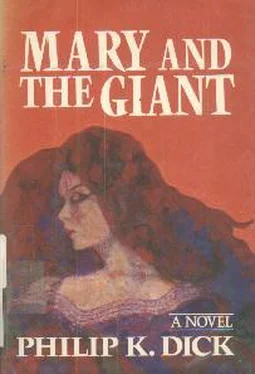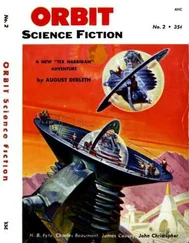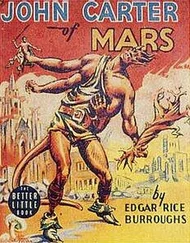Philip Dick - Mary And The Giant
Здесь есть возможность читать онлайн «Philip Dick - Mary And The Giant» весь текст электронной книги совершенно бесплатно (целиком полную версию без сокращений). В некоторых случаях можно слушать аудио, скачать через торрент в формате fb2 и присутствует краткое содержание. Жанр: Фантастика и фэнтези, на английском языке. Описание произведения, (предисловие) а так же отзывы посетителей доступны на портале библиотеки ЛибКат.
- Название:Mary And The Giant
- Автор:
- Жанр:
- Год:неизвестен
- ISBN:нет данных
- Рейтинг книги:4 / 5. Голосов: 1
-
Избранное:Добавить в избранное
- Отзывы:
-
Ваша оценка:
- 80
- 1
- 2
- 3
- 4
- 5
Mary And The Giant: краткое содержание, описание и аннотация
Предлагаем к чтению аннотацию, описание, краткое содержание или предисловие (зависит от того, что написал сам автор книги «Mary And The Giant»). Если вы не нашли необходимую информацию о книге — напишите в комментариях, мы постараемся отыскать её.
Mary And The Giant — читать онлайн бесплатно полную книгу (весь текст) целиком
Ниже представлен текст книги, разбитый по страницам. Система сохранения места последней прочитанной страницы, позволяет с удобством читать онлайн бесплатно книгу «Mary And The Giant», без необходимости каждый раз заново искать на чём Вы остановились. Поставьте закладку, и сможете в любой момент перейти на страницу, на которой закончили чтение.
Интервал:
Закладка:
"If it's a felony to do it at three o'clock in the morning, it's a felony to do it in the afternoon."
"I thought you understood."
"If it's a felony-"
"Keep your voice down," Tweany said, with a glance at Nitz and the couple. Now they were involved in a discussion of contemporary atonal experiments. "That was only-now and then. Not a thing they could catch."
"Now and then? Temporary?"
She was furious, really furious. Because she remembered what it was convenient for him to forget: that specific day he had taken her into his apartment, the two of them lost among the clutter that filled the rooms, two living creatures bedded together among the pack rat's hoard. And the hot summer sun baking the flies that crept up the windowpanes ... lying, the two of them, slippery with sweat, covered by nothing, spread out on the bed with the glare blinding them into an indolent, careless stupor.
There, in that high loft, they had eaten their breakfast, had shared the old bathtub, had cooked and ironed, had roamed naked through the rooms, playing the little piano, had sat, in the evening, listening to the radio, staring into the red button of its dial light, the two of them combined on the couch, on the sagging, dust-sodden couch.
Although, according to Tweany, she was not much good that way. She had learned-been taught-to rest her weight on her shoulder blades and not on her coccyx; that way she could raise her hips higher. But other than purely muscular tensions, she had developed no responses; the experience brought her nothing, and nothing was what she gave back.
It was, to her, very like the time the doctor had stuck his metal probe into her nose to break off a polyp. The same pressure, the same too-large physical unit forcing its way inside her; then pain, and a little blood, and the crickets chirping in the grass of the yard below the window.
Tweany said she was no good: small and bony and frigid. Gordon, of course, had no opinion; he expected nothing but concavity, and that was what he got: no more and no less.
"Tweany," Mary Anne said, "you can't pretend we haven't been-"
"Don't get upset," Tweany said silkily. "You'll get ulcers."
Mary Anne leaned toward him until her small, tight face was almost touching his. "What have you been doing the last two months?"
"Absolutely nothing. Except my art."
"You're staying with somebody. You're never at home; I waited one night all night and you didn't show up. You didn't come home."
Tweany shrugged. "I was visiting."
Next to them, the discussion had become heated. "I never heard of that," Nitz was saying.
"You could have," the blonde told him. "Don't you have a radio? Every Wednesday night Joe has a program over that San Mateo good-music station. Listen to that. He writes up his material; he likes to do it all himself."
"I tried listening to that stuff," Nitz said, "but I can't get with it. It's-old."
Lapsing into silence, Mary Anne withdrew into her own thoughts; the conversation meant nothing to her.
"It's not old. It's still going on; the same material you're doing, only they don't call it by the same name. Milhaud, up in Oakland. And Roger Sessions is at Berkeley; go listen to him. Sid Hethel is at Palo Alto; he's about the best there is. Joe knows him .. they're old friends."
"I thought it was nothing but Mozart," Nitz said.
The blonde continued: "On Sunday, when the shop is closed,
Joe has a two-hour record concert. You should go."
"You mean people just walk in?"
"Fifteen or so people show up. He plays atonal, early baroque, whatever they want." With a flicker of her blue eyes she glanced up at Tweany. "I saw you there; you showed up once."
"That's so," Tweany admitted. "You brought out a tray of coffee for us, halfway through."
"Did you enjoy yourself?"
"Very much. That's an extraordinary shop he has."
"What's that?" Mary Anne said sharply. She woke up, then: the conversation had ceased to be abstract. Now it was dealing with reality, and she began to pay attention.
"The new record shop," Tweany said.
Mary Anne turned to confront the blonde. "Do you know that man?" she demanded, recalling in a rush the record shop, the looming shape of the man with his vest and gold watch and tweed suit.
"Joe?" The blonde smiled. "Oh, yes. We're old friends of Joe's."
"Where'd you meet him?" She experienced a kind of horror, as if she were being told about some personal crime.
"In Washington, D.C."
"You're from out of town, aren't you?"
"Yes," the blonde said.
"He's really on the level!" Her distress was real, again. But after four months it no longer had the same urgency. It had thinned as it receded into time; it was not immediate.
"Joe has been in the music business all his life," the blonde said. "His aunt sold harps in Denver during the Spanish-American War. Joe worked for Century Music in New York, in the twenties. Before you were born."
Brooding, Mary Anne said: "I don't like it in there."
"Why not?"
"It gives me the creeps." Not wishing to discuss it, Mary Anne said to Tweany: "When are you going to leave? Are you doing another set or not?"
Tweany pondered. "I believe I'll go lie down. No, I won't do another set. I've done enough for tonight."
The blonde was still studying Mary Anne with interest. "What do you mean? Why do you say that about Joe's store?"
Struggling, Mary Anne answered: "It's not the store." That was certainly true; she had loved the store.
"Did something happen?"
"No, nothing." She shook her head irritably. "Forget it, will you?" All at once the fear came back, and she said to Tweany: "Do you really go in there?"
"Certainly," Tweany said.
It seemed difficult to believe. "But that's the man I told you about."
Tweany had no comment.
"Did-you like him?" Mary Anne asked.
"A gentleman," Tweany stated. "We had quite an interesting talk about Bascom Lamar Lunsford. He played an ancient Lunsford record for me, cut around 1927. From his private collection."
Bewildered by this double set of images, Mary Anne said: "You never told me you went in there."
"Why? What's the importance?" Tweany seemed unconcerned. "I go wherever I care to."
Paul Nitz could no longer keep quiet. "You suppose he'd give me a few pointers?" he asked.
"Joe has worked with a number of young musicians," the blonde said. "He gave me a great deal of help-he got some pieces of mine published. Right now he's plugging a kid he heard singing up in San Francisco at one of the North Beach joints; he's been taping his routine and trying to get one of the lp companies to press it."
"Chad Lemming," her companion said.
"What sort of approach does he represent?" Tweany asked with professional interest.
"Chad does political monologues," the blonde said. "With a guitar. Sort of rhymed commentaries on the present state of affairs. Thought control, Senator McCarthy, topics like that. Would you care to hear him?"
"I suppose," Tweany said.
The blonde got promptly to her feet. "Come along, then."
"Where?"
"He's at our place-he's staying with us until he goes back up the peninsula. He'll only be down here a few days."
Mary Anne watched with dismay the response of Carleton Tweany. What was happening was obvious, but she could think of nothing to do. And then Nitz, mild, eyes half-shut, came to her rescue. "You've got another set, man," he said.
"I'm tired," Tweany said. "I'll let it go this time."
"You can't."
Hauteur overcame Tweany; he clearly was not giving up. "I can't perform creatively when I'm tired."
"Then come on," the blonde urged.
As if responding to an occult power, Taft Eaton approached the table, his bar rag oozing bubbles in a trail across the floor. "One more set, Carleton. You've not leaving."
Читать дальшеИнтервал:
Закладка:
Похожие книги на «Mary And The Giant»
Представляем Вашему вниманию похожие книги на «Mary And The Giant» списком для выбора. Мы отобрали схожую по названию и смыслу литературу в надежде предоставить читателям больше вариантов отыскать новые, интересные, ещё непрочитанные произведения.
Обсуждение, отзывы о книге «Mary And The Giant» и просто собственные мнения читателей. Оставьте ваши комментарии, напишите, что Вы думаете о произведении, его смысле или главных героях. Укажите что конкретно понравилось, а что нет, и почему Вы так считаете.










